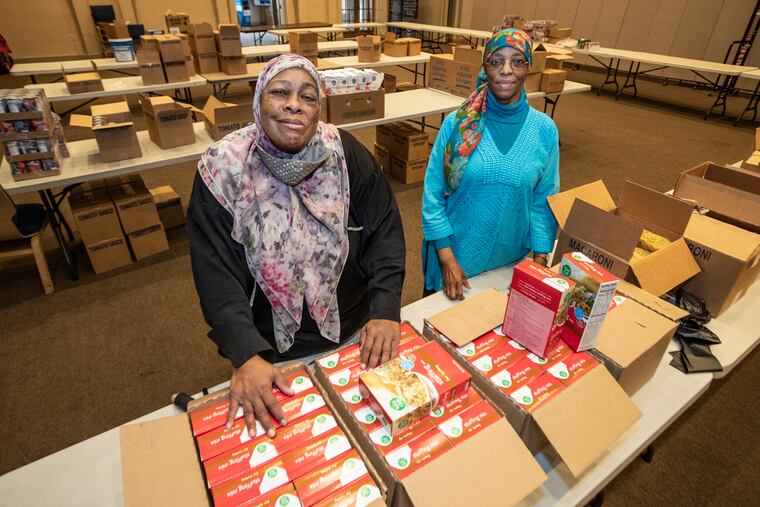Portrait of a Pandemic: This retired social worker observes Ramadan while feeding others
Addressing hunger in the city has been Nailah Johns’ mission for two decades as director of the Sadaqah food program,

During the holy month of Ramadan, Muslims believe they will get extra blessings for doing good deeds. With this year’s holiday happening in the midst of a pandemic, there is no shortage of opportunities for Gaye Nailah Johns.
The 63-year-old retired social worker has started packing bags of food for a few of her homebound neighbors in Philadelphia, putting groceries in the trunk of her car so they can pick up the food while minimizing contact.
Last weekend, she drove across town to deliver food to a day-care provider and mother of five who lost her job when the coronavirus hit.
“May Allah bless you,” Johns told the woman, whose face was wet with tears as her daughter collected the groceries out of Johns’ trunk.
“We’re all trying to get through this,” Johns said. “We’re all trying to help each other. Everybody needs help.”
Addressing hunger in the city has been Johns’ mission for two decades as director of the Sadaqah food program — the Arabic word means “charity” — at the Masjidullah mosque in West Oak Lane. Philadelphia has one of the largest Muslim populations in the country, particularly of black Muslims. Nationally, one in five Muslims is black. An estimated 30,000 Muslims live in the city, which is home to more than 60 mosques.
Before the pandemic, the citywide program served 130 clients, mostly seniors, delivering groceries at the end of the month and offering pickup service two days a week. Now, Johns said, drop-offs to vulnerable seniors must be socially distanced and the lines for pickup at the mosque have grown.
“We’re feeding seniors and anybody else who needs a bag — a lot of young people, people who lost their jobs, I’m seeing them in the lines,” she said. “We’re just thinking of creative ways to help people.”
Johns said her worship experience has changed in some big ways, too. Her daily routine of prayers, fasting, and reading the Qu’ran has remained largely the same, but there are other rituals of community that she misses.
“Muslims are very affectionate,” she explained. “We hug each other. There’s none of that. Can’t touch you. How sad is that? I can’t go to the masjid and pray with a whole bunch of people. Everything is virtual now.”
She misses meeting with her Muslim sister circle on weekends over meals and conversations. The meal after the breaking of the fast — normally with fellow believers at the mosque after the sunset prayer — now happens at home.
“Most Muslims get really excited about Ramadan, because it’s a time of reflection, to ask, ‘Do I need to be a better human being to society?’ Prayers consist of praying for whatever the needs are of humanity and yourself.”
For now, Johns continues to adjust a familiar and cherished time of year to a new normal.
“What I do is remember that people still have a need, and think about how I can figure out how to meet their need,” she said. “Everyone still has to eat.”